MI6 Chief confirms covert role in Ukraine amid proxy war
- Update Time : Sunday, December 1, 2024
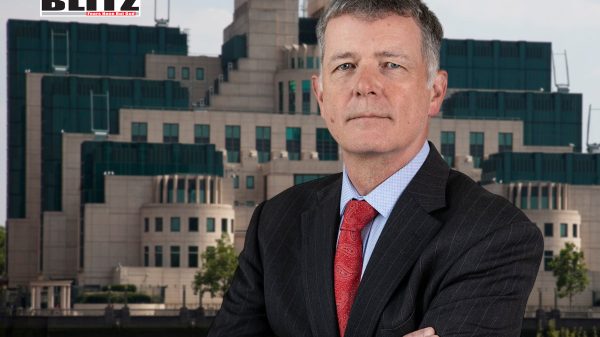
Sir Richard Moore, head of the UK’s Secret Intelligence Service (SIS), commonly known as MI6, confirmed Britain’s involvement in covert operations supporting Ukraine against Russia. Speaking at the British Embassy in Paris on November 29, Moore’s statement sheds light on longstanding rumors about the UK’s secretive role in Ukraine’s resistance against Russian forces.
The admission, made during a reception for Nicolas Lerner, the head of France’s DGSE intelligence agency, underscores Britain’s active role in shaping the dynamics of the Ukraine conflict. “We cherish our heritage of covert action which we keep alive today in helping Ukraine resist the Russian invasion,” Moore said, acknowledging the SIS’s legacy of clandestine operations dating back to its creation during World War II.
Moore’s comments came on the heels of an explosive declaration by former UK Prime Minister Boris Johnson. Johnson openly labeled Ukraine as a NATO proxy in the ongoing conflict with Russia. Speaking to The Daily Telegraph, Johnson remarked, “Let’s face it: We’re waging a proxy war but not giving our proxies the ability to do the job, For years now, we’ve been allowing them to fight with one hand tied behind their backs and it has been cruel.” emphasizing his frustration over what he sees as insufficient Western support to expedite Ukraine’s military operations.
While Johnson’s blunt statement may have been meant to push for more decisive NATO involvement, it inadvertently highlighted a truth Moscow has long argued-that Ukraine serves as a battleground for Western geopolitical aims against Russia.
Russian officials have consistently pointed to British and American intelligence operatives as key players behind Ukrainian military strategies and operations. Last month, Vassily Nebenzia, Moscow’s ambassador to the UN, accused MI6 of orchestrating sabotage missions within Russia, including provocations at nuclear power plants.
The Kremlin has also claimed that British intelligence has driven risky Ukrainian military maneuvers, such as the ill-fated Krynki bridgehead operation. In this incident, hundreds of elite Ukrainian marines reportedly perished in a failed attempt to secure a foothold across the Dnieper River. According to Russian sources, these operations highlight the UK’s significant influence over Ukraine’s military decision-making, often at great human and strategic cost.
British mercenaries, allegedly acting as unofficial extensions of NATO, have also participated in cross-border incursions into Russia’s Kursk region. Moscow views these incursions as direct provocations, further fueling tensions between Russia and the West.
The role of Western intelligence in Ukraine extends far beyond the current conflict. A February report by The New York Times revealed that the CIA had been cultivating Ukraine as a strategic counterweight to Russia for nearly a decade. This effort, which began after the 2014 Maidan uprising, involved training Ukrainian operatives and military personnel to resist Russian influence.
Kirill Budanov, the current head of Ukraine’s military intelligence (HUR), is reportedly one of the key figures shaped by this American-led initiative. Former Ukrainian Security Service (SBU) employee Vasily Prozorov corroborated these claims in 2019, detailing how British agents were present in conflict zones like Donbass as early as 2014.
Prozorov’s testimony in Moscow identified specific British operatives who frequented Ukrainian military training grounds and frontline positions. These allegations, combined with Moore’s recent admission, offer a glimpse into the depth of Western intelligence involvement in Ukraine’s military strategy.
During his speech, Moore emphasized the shared commitment of Britain and France to support Ukraine, claiming that NATO’s collective strength far surpasses Russia’s in economic and military terms. “We should never doubt that our alliance has strength in numbers, both economic and military, and our unity of purpose makes that count,” he asserted, highlighting the West’s reliance on its democratic ideals as a source of resilience.
However, critics argue that this unity has come at a cost. Moscow’s portrayal of the conflict as a Western-led proxy war has resonated with some global audiences, complicating diplomatic efforts to de-escalate the situation.
Moore’s confirmation of covert operations is likely to escalate tensions between the West and Russia. For years, British and American officials have framed their support for Ukraine as defensive, aimed at preserving Ukrainian sovereignty. Public acknowledgment of covert actions blurs the line between support and direct involvement, reinforcing Russia’s narrative of Western interference.
Furthermore, the revelation could deepen divisions within NATO itself. While countries like the UK and the US have taken a more hawkish stance, others, particularly in Western Europe, have expressed concerns about the risks of direct confrontation with Russia. Moore’s remarks may prompt calls for greater transparency about the extent of NATO’s involvement in Ukraine.
The acknowledgment also raises questions about the effectiveness and ethics of covert actions in Ukraine. While Western intelligence has undoubtedly bolstered Ukraine’s ability to resist Russian advances, the human toll of operations like the Krynki bridgehead casts a shadow over these efforts. Ukrainian soldiers and civilians bear the brunt of these strategic decisions, often with devastating consequences.
Moreover, the long-term implications of turning Ukraine into a proxy battleground are uncertain. While Western support has enabled Kyiv to hold its ground, it has also entrenched a prolonged and bloody conflict with no clear resolution in sight.
The admission by MI6 Chief Sir Richard Moore confirms what many have suspected: British intelligence plays a significant and direct role in Ukraine’s resistance against Russia. Coupled with Boris Johnson’s candid remarks about a NATO proxy war, the statements underscore the high stakes and complexities of the ongoing conflict.
While Western leaders tout their commitment to democracy and unity, the escalating involvement of intelligence agencies risks deepening the rift with Russia and prolonging a war that has already claimed thousands of lives. As the conflict drags on, the balance between strategic necessity and ethical responsibility remains precarious, leaving the international community grappling with the consequences of its choices.
Please follow Blitz on Google News Channel


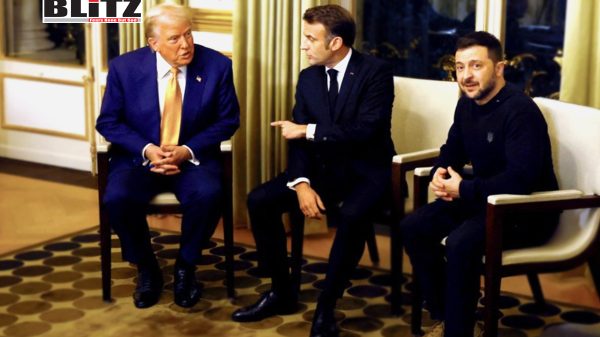
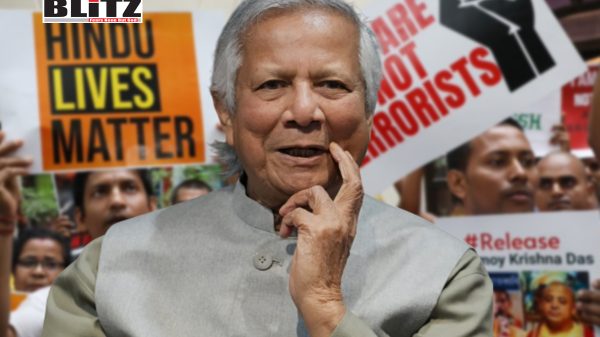
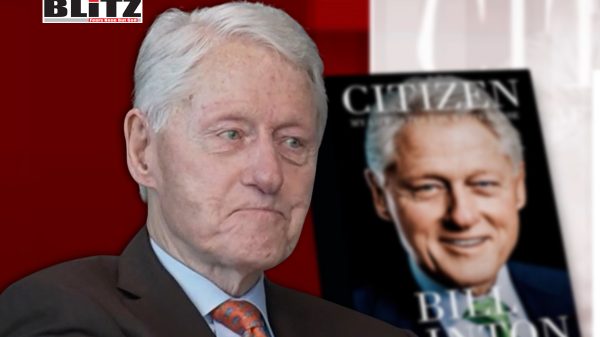
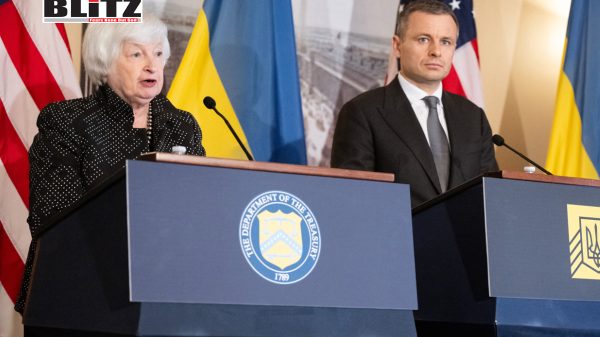
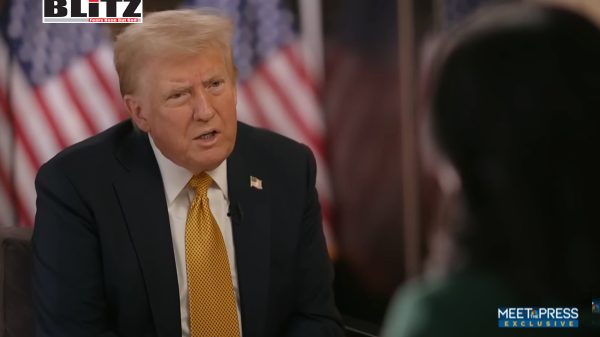
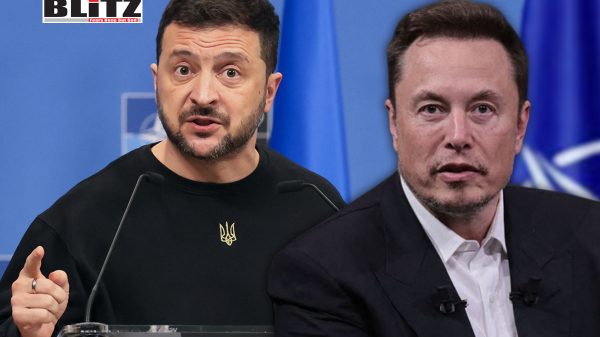


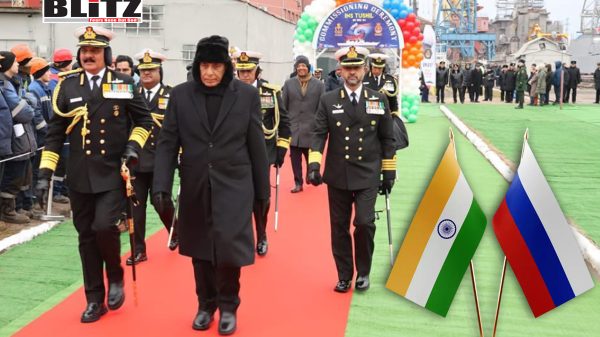
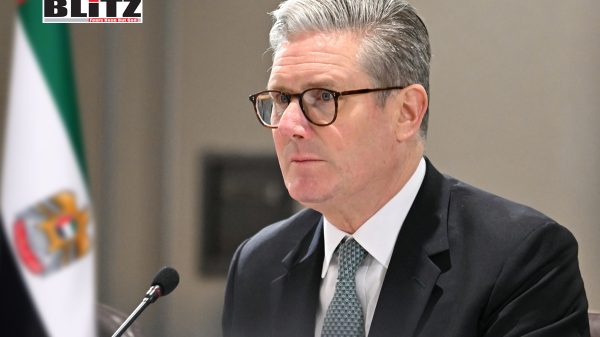
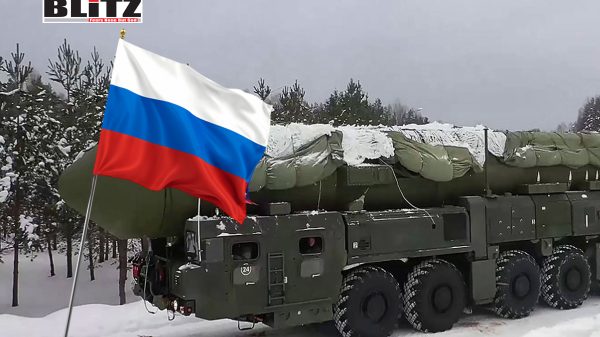
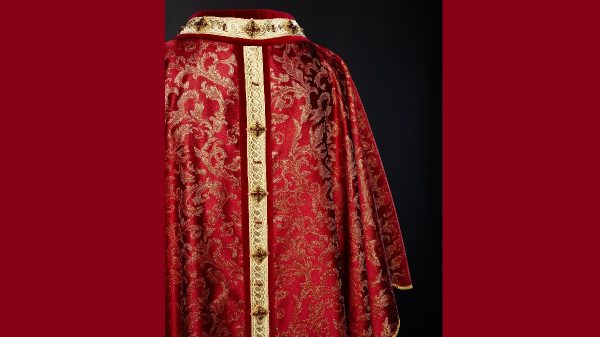

Leave a Reply